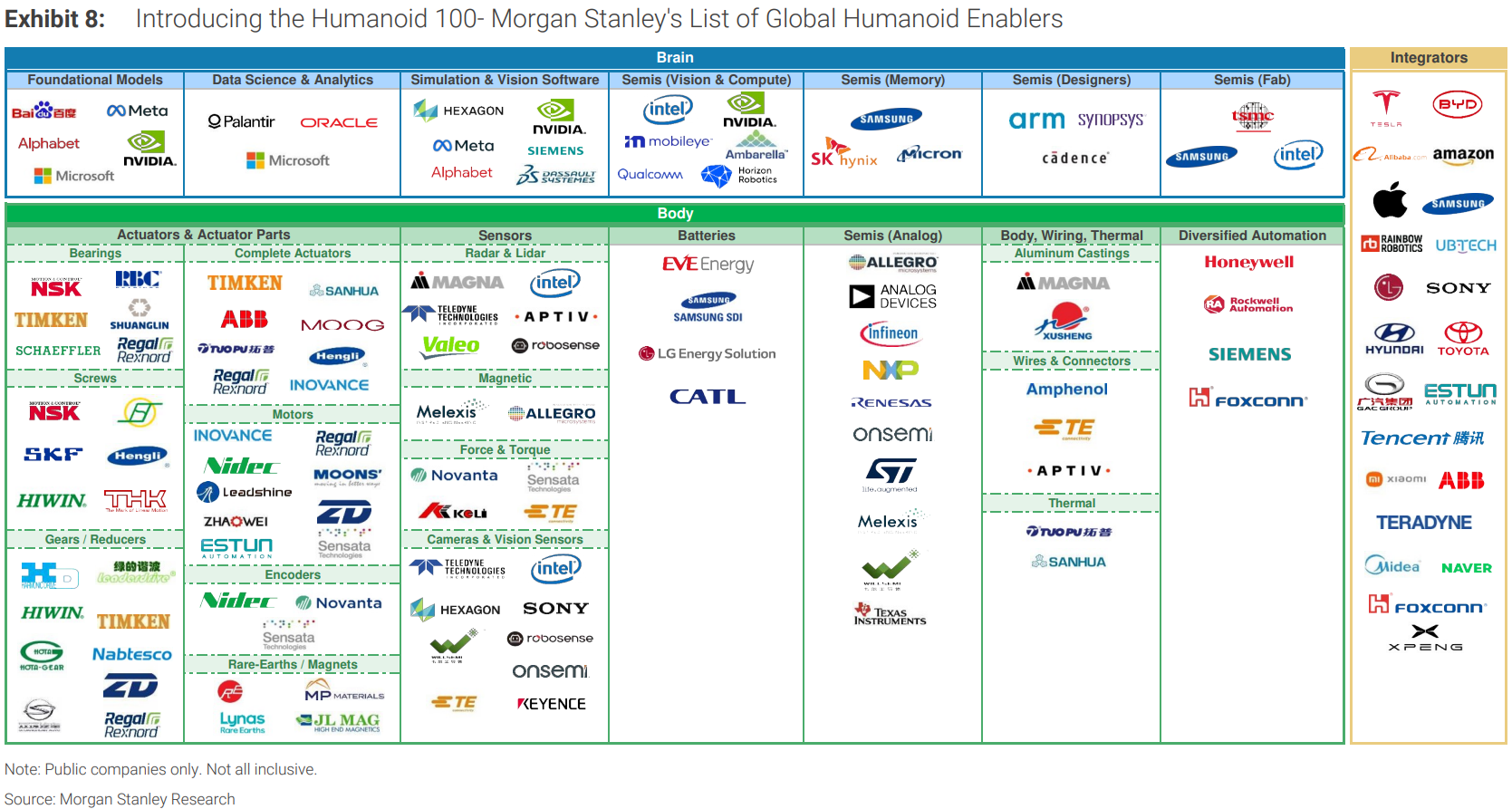Two Guangzhou firms make Morgan Stanley's 'Humanoid 100' list
GAC Group and XPENG, two Guangzhou-based companies, have been highlighted as pivotal players in Morgan Stanley's list of companies driving humanoid robot development.

The international investment bank recently released the "Humanoid 100: Mapping the Humanoid Robot Value Chain," a comprehensive list of global companies poised to benefit from the growth of humanoid robots. A total of 37 Chinese enterprises are on the list, including two from Guangzhou and seven from Shenzhen.
On March 18, a media tour in Guangzhou, Guangdong province, provided a closer look at the city's rapidly growing low-altitude economy and aerospace sectors, featuring key industry players such as XPENG AEROHT, EHang, and XAG.
As part of its broader strategy to strengthen global competitiveness, Guangzhou is prioritizing the development of 15 strategic industry clusters, with low-altitude economy and aerospace among the priorities.
Chinese electric vehicle maker XPeng Motors, headquartered in Guangzhou, Guangdong Province, is making a bold push into humanoid robotics, announcing that its advanced robot, IRON, has entered factory training and is targeting mass production in 2026.
During Guangzhou's "12218" Modern Industrial System Research Tour, XPeng Motors provided new insights into IRON, which is designed to closely mimic human form and movement.
What sets it apart is its highly dexterous hands, featuring a 1:1 human-like structure with 22 degrees of freedom. This allows IRON to perform intricate tasks such as grasping objects, sensing weight and texture changes, and executing precision assembly line operations—capabilities that could transform industrial automation.
Already undergoing real-world testing in factories, IRON is expected to take on labor-intensive, high-precision tasks that are traditionally performed by humans.
XPeng Motors claims that by leveraging its expertise in AI-driven automotive manufacturing and an integrated production ecosystem, the company has significantly reduced the development costs and technical risks associated with humanoid robotics. This could give XPeng an edge in the race to commercialize Level 3 (L3) humanoid robots—systems capable of semi-autonomous operation with moderate human oversight.
"Humanoid robots are categorized into five levels based on intelligence," an XPeng Motors spokesperson explained. "XPeng is currently developing an L3 humanoid robot, while most of the industry remains at the L1–L2 stage."
Under this classification, L1 robots require full manual control, while L2 systems offer basic intelligent assistance but still depend heavily on human intervention. L3 represents a major leap forward, incorporating embodied intelligence to handle complex tasks with reduced oversight. L4 robots are designed to self-learn and function with minimal human involvement, while L5 represents full autonomy.
"Walking stability is just the beginning—true innovation lies in dexterous hand operations," the spokesperson added. "Our physical world is built for hands, and a robot's ability to manipulate objects with precision will define its commercial viability. Developing such hands is a major technical challenge that spans multiple disciplines, including sensor technology, material science, and actuation systems."
XPeng Motors sees AI as the key to bridging the gap between mechanical functionality and human-like cognition. The company believes humanoid robotics represents one of the most challenging engineering frontiers, requiring breakthroughs in software, hardware, and AI integration.
The XPeng representative acknowledged that humanoid robotics presents a significantly greater challenge than self-driving cars, as it requires seamless coordination between sensors, control mechanisms, and
actuation systems. Nevertheless, the company remains optimistic that its expertise in AI-driven automation will help accelerate the path toward commercial deployment.
"Land Aircraft Carrier" set for mass production by 2026 as Guangzhou pioneers low-altitude economy
(Video: GDToday)
XPeng's AI humanoid robot aiming for mass production in 2026
XPeng's AI humanoid robot IRON (Video: XPeng Motors)
Copyright © Foreign Affairs Office of Guangzhou Municipal Government,
Hong Kong and Macao Affairs Office of Guangzhou Municipal Government All rights reserved.
Presented by China Daily.
京ICP备13028878号-28



